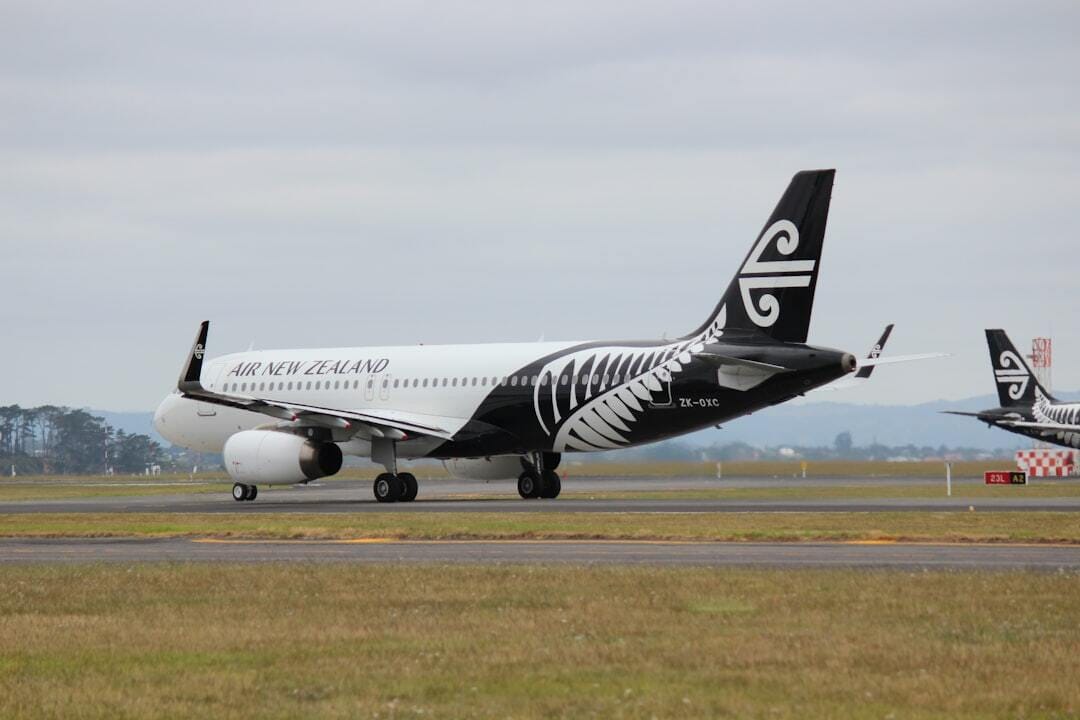Dear readers,
Welcome to AviationOutlook newsletter, your one-stop source for the most relevant aviation & aerospace news briefs and industry insights.
Here are the important updates for today. Let’s get started.
Air New Zealand Scraps 2030 Climate Goal

Air New Zealand has decided to abandon its ambitious 2030 carbon emissions reduction target, citing delays in the delivery of new, more fuel-efficient aircraft and challenges in sourcing sustainable aviation fuel.
The airline says it, however, remains committed to achieving net-zero carbon emissions by 2050
Key Points
Ambitious 2030 Target: Air New Zealand initially set a goal in 2022 to reduce carbon emissions by 29% by 2030, significantly higher than the global aviation industry's target of 5%.
Reasons for Abandonment:
Aircraft Delivery Delays: The airline faces significant delays in receiving new, more fuel-efficient aircraft due to global manufacturing and supply chain issues.
Sustainable Aviation Fuel: There are substantial challenges in the affordability and availability of sustainable aviation fuel, which is crucial for meeting the emissions targets.
Regulatory and Policy Challenges: Insufficient global and domestic regulatory and policy support further complicates achieving the set targets.
Withdrawal from SBTi: Air New Zealand has withdrawn from the Science Based Targets initiative (SBTi), which provided a framework for setting and achieving science-based emissions reduction targets.
New Near-Term Targets: The airline is working on establishing new short-term carbon emissions reduction targets that better reflect the current challenges.
Commitment to 2050 Goal: Despite retracting the 2030 target, Air New Zealand says it remains committed to achieving net-zero carbon emissions by 2050.
What It Means
Air New Zealand's decision to drop its 2030 carbon target underscores the significant hurdles the aviation industry faces in reducing emissions.
The delay in aircraft delivery and the limited availability of sustainable aviation fuels highlights the broader systemic issues that need to be addressed. This move may signal to other airlines the difficulties in meeting near-term climate goals without substantial advancements in technology and stronger regulatory frameworks.
While the commitment to net-zero emissions by 2050 remains, achieving this will require innovative solutions and concerted efforts from all stakeholders in the aviation sector.
Other key aviation and aerospace industry updates for today 👇
United Airlines Biohazard Incident Update
United Airlines Flight 2477, diverted to Washington Dulles on July 28 due to a biohazard, resumed its journey to Boston after deep cleaning. None of the 155 passengers or six crew members required medical assistance.
The airline is investigating the incident, which caused crew and passengers to vomit.
Embraer Launches Strategic P&W Engine Repair Facility in Portugal
Brazilian aircraft manufacturer Embraer has inaugurated a new maintenance hub in Portugal dedicated to servicing Pratt & Whitney engines.
This strategic move comes in response to a significant surge in demand for engine maintenance services.
The facility is expected to enhance Embraer's maintenance capabilities and strengthen its position in the aviation aftermarket sector.
Bombardier Eyes Strategic Acquisition of Belfast Aerospace Facilities
Bombardier is considering acquiring Spirit AeroSystems' Belfast factories to secure its supply chain amid Boeing's $4.7 billion Spirit takeover.
The move aims to protect Bombardier's interests, as the Belfast plants produce crucial components for its aircraft.
This potential acquisition could impact Northern Ireland's aerospace industry and thousands of jobs.
Oneglobal and Worldlink Introduce Innovative US Aviation Liability Coverage
Oneglobal Broking and Worldlink Specialty have unveiled "AeroPRO," a comprehensive professional liability insurance solution for the US aviation industry.
This new offering aims to address various liability risks faced by aviation professionals, providing tailored coverage to meet the sector's evolving needs.
TCS Predicts Predictive Intelligence to Revolutionize Aviation Efficiency and Emissions
Tata Consultancy Services (TCS) anticipates increased adoption of predictive intelligence in aviation, aiming to reduce emissions and enhance operational efficiency.
This technology will optimize fuel usage, maintenance schedules, and flight operations, contributing to a more sustainable and efficient aviation industry.
Rex Airlines Grounds Capital City Flights Amid Voluntary Administration
Rex Airlines enters voluntary administration, grounding all Boeing 737 flights between major cities.
Regional services continue, with Ernst & Young appointed as administrators. Virgin Australia offers rebooking for affected passengers.
The airline's failed expansion into mainline routes led to significant financial losses.